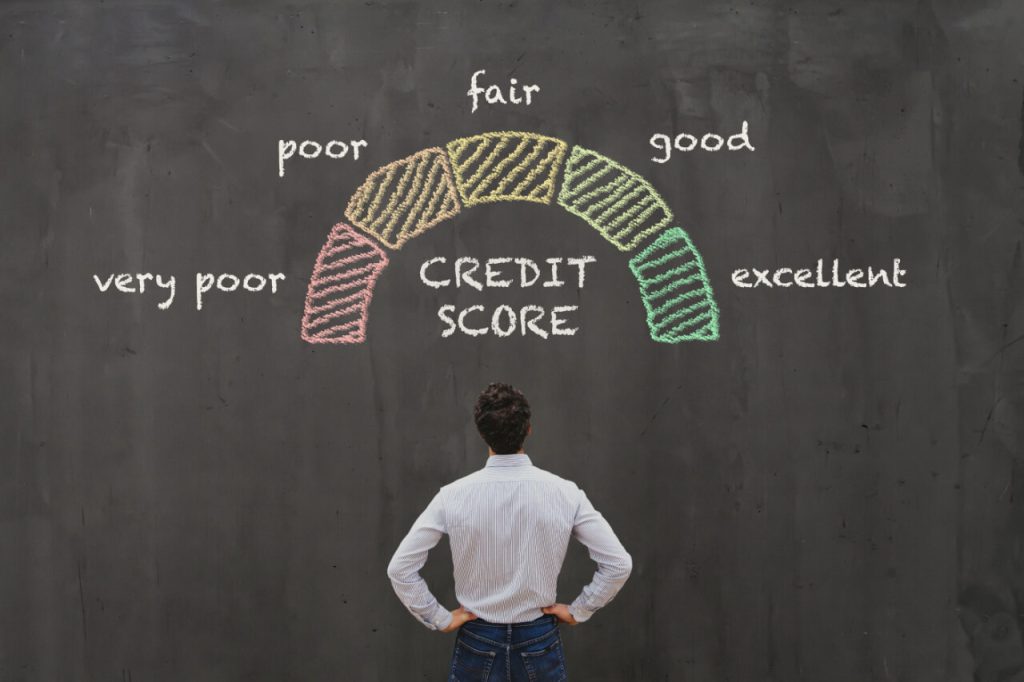How Does Bankruptcy Affect Your Credit Score

Bankruptcy is usually defined as a legal status of an entity or a person who can’t repay the debts he or she owes to creditors. In fact, this is a legal process that can be used to discharge debts and it’s the last resort for those who have tried all other options.
However, be careful when using this “last option.” Bankruptcy can remove your ability to borrow money from creditors, as they will see you as too high of a risk. It may also cause the interest rates on any loans you get to be much higher than they would have been before bankruptcy.
Do you want to file bankruptcy despite the possible consequences? Here’s everything you need to know before taking this step.
What Will Happen to Your Credit When Filing for Bankruptcy?
The payment history is one of the key factors in determining credit scores. If you plan to file bankruptcy, bear in mind that it can negatively affect your credit score. That’s because the covered debts cannot be paid off in full as originally arranged.
In the United States, bankruptcy is allowed under federal law and every state has its own laws about how bankruptcy affects credit scores. There are different types of bankruptcies and they can have an impact on your credit history and score in many ways.
But it’s not all about the credit score. Bankruptcy can affect your life in the following ways:
- The banks can close your accounts.
- You may end up losing your belongings or valuables.
- The filing becomes public knowledge.
- Your passport can be taken away by the court.
- It can be a very stressful experience.
How Long Does Bankruptcy Affect Your Credit Score?
Bankruptcy appears on credit reports for 6 years in most cases. If that takes longer, it may appear as long as you are discharged. This will also depend on the type of bankruptcy. There are two types: Chapter 7 and Chapter 13.
As for Chapter 13 bankruptcy (also called a reorganization bankruptcy), both your credit scores and reports can be affected for 7 years (from the filing date). It will impact your credit score and stay on your credit reports for ten years when it comes to liquidation bankruptcy (Chapter 7 bankruptcy).
Who Can See that You Are Bankrupt?
Remember that lenders can see it when looking at your credit reports no matter what type of bankruptcy you’ve chosen. It will be visible in the section for public records. Furthermore, this is often one of the vital factors when making lending decisions.
If the bankruptcy isn’t discharged, many lenders won’t approve applications when applying for credit. Even if it’s discharged, you will probably have trouble meeting the eligibility criteria for some types of loans. In case you qualify, you’re likely to face unfavorable terms like higher interest rates.
However, the creditors and lenders are not the only ones who know about your bankruptcy. This information is available to many third-party companies and organizations, such as:
- Your landlord
- Utility suppliers (gas, energy, and water)
- Credit reporting agencies or credit bureaus
- Your local authority
- A professional body you are a member of
- Building societies and banks
How Can You Rebuild Your Credit After Bankruptcy?
Now that you know the main downsides of filing for bankruptcy, you should have a better idea of whether it’s the best option for you. While it offers quick relief from debt, you should consider alternatives to bankruptcy, including:
- A debt management plan
- Debt settlement
- Debt consolidation
These options don’t have a great influence on credit scores. If you’ve already filed for bankruptcy, then you need to know how to rebuild your credit. At this stage, you probably want to know how soon your credit score will improve after bankruptcy. Will your credit score be improved after the removal of bankruptcy?
Yes, it’s possible to increase credit score after bankruptcy. Just because it stays on your report for 7 or ten years, depending on the type, this doesn’t mean you can’t raise your score during this period. The more intentional steps you take to actively rebuild your credit, the less time it will take to improve your credit score.
5 Tips on How to Rebuild Credit After Bankruptcy
Here are a few steps you can take and things you can do to rebuild your credit score.
- Make timely payments on your bills – Why should bills be paid on time? Simply because it affects payment history, which is one of the most significant components of your credit score. So never miss a payment if you want to rebuild your credit.
- Get a secured credit card – If you use secured credit cards strategically and regularly, lenders will trust you more. Despite having a slightly lower barrier of entry, these cards can be used to build credit and spend money just as with traditional cards. Keep in mind that an upfront security deposit is required. Once you’ve established some positive history, you will be able to switch to traditional cards coming with lower interest rates.
- Keep track of your credit report and credit score – monitor them all the time to stay up to date with your progress. If there’s any potential problem that can hurt your credit score, you’ll be able to act fast and address it promptly. That will help you avoid further decreases. Some credit card issuers offer free credit report updates to their customers.
- Try sticking to a budget –regardless of your finances, you should always stick to a budget after creating it. Otherwise, all your hard work may go to waste. Do not overspend. Also, avoid applying for credit if it’s not necessary.
- Practice good credit habits – In addition to making on-time consistent payments, this involves keeping credit balances low and building an emergency fund. It is also a good idea to reduce credit card use or stop credit card dependence. This can help you rebuild credit after bankruptcy.
Summary
Are you able to pay your debt? Do you plan to file bankruptcy? As you can see, bankruptcy is a legal status for people or businesses who cannot pay their debts. It is usually considered as a last resort when all other options have been exhausted.
The bankruptcy can remain on your credit report for 10 years and affect your credit score adversely. What’s more, it can lead to higher interest rates and even rejection of loan applications, which can make it more difficult for you to purchase a home or car. So, think twice before filing bankruptcy.
Related: How to file bankruptcy in Hawaii?

